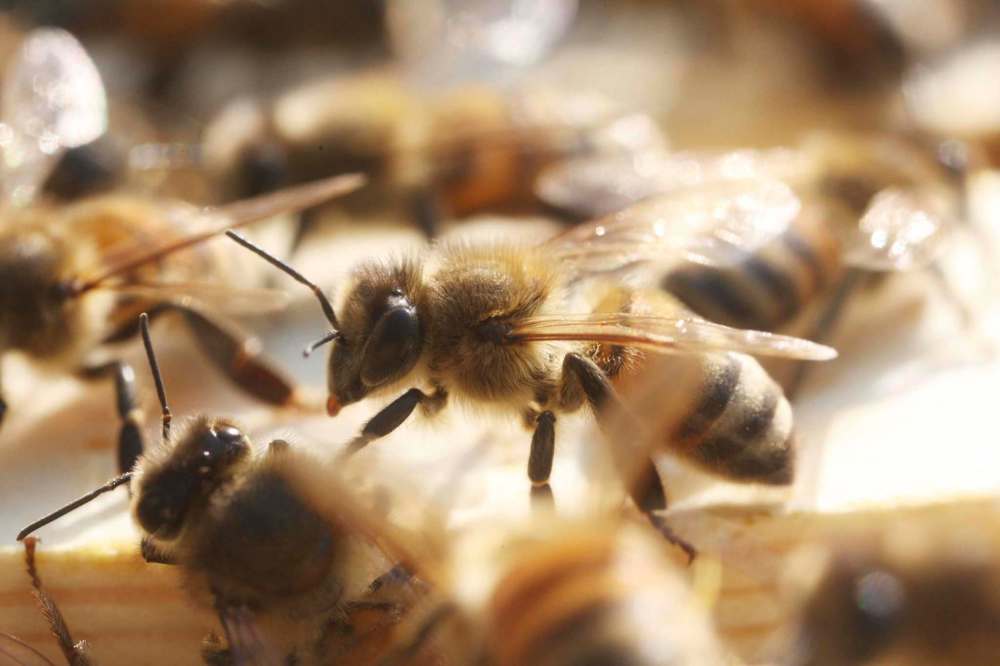Backyard beekeeping under consideration
Advertisement
Read this article for free:
or
Already have an account? Log in here »
To continue reading, please subscribe:
Monthly Digital Subscription
$0 for the first 4 weeks*
- Enjoy unlimited reading on winnipegfreepress.com
- Read the E-Edition, our digital replica newspaper
- Access News Break, our award-winning app
- Play interactive puzzles
*No charge for 4 weeks then price increases to the regular rate of $19.00 plus GST every four weeks. Offer available to new and qualified returning subscribers only. Cancel any time.
Monthly Digital Subscription
$4.75/week*
- Enjoy unlimited reading on winnipegfreepress.com
- Read the E-Edition, our digital replica newspaper
- Access News Break, our award-winning app
- Play interactive puzzles
*Billed as $19 plus GST every four weeks. Cancel any time.
To continue reading, please subscribe:
Add Free Press access to your Brandon Sun subscription for only an additional
$1 for the first 4 weeks*
*Your next subscription payment will increase by $1.00 and you will be charged $16.99 plus GST for four weeks. After four weeks, your payment will increase to $23.99 plus GST every four weeks.
Read unlimited articles for free today:
or
Already have an account? Log in here »
Hey there, time traveller!
This article was published 05/05/2017 (3106 days ago), so information in it may no longer be current.
FRESH honey could be as close as your backyard before long.
A city hall administrative report is recommending hobby beekeeping be allowed as an accessory use throughout Winnipeg with only a permit and without the need for public notices or hearings.
Despite its own recommendation, the administration is proposing a public hearing to determine where hobby beekeeping would be allowed and which conditions, if any, should be imposed.

The proposal will be considered by the property and development committee at its meeting Tuesday.
Currently, hobby or small-scale beekeeping is allowed only in the downtown area. Commercial apiaries are a conditional use, through a public-hearing process, in industrial and agricultural areas on the city’s fringe.
The proposal marks a complete reversal for the city on urban beekeeping. As late as 2013, a civic committee had banned hobby beekeeping in Winnipeg. Then, after lobbying from local beekeepers and a hotel operator, in January 2016 council voted to permit small-scale beekeeping downtown.
In March 2016, the planning committee instructed staff to reconsider the practice citywide, which led to meetings with stakeholders and public consultations.
“The public service observed overwhelming support for expanded urban beekeeping,” the report states.
In a cross-jurisdictional review, the city found only Winnipeg and Ottawa-Gatineau prohibit urban beekeeping through zoning. In most Canadian cities, backyard beekeeping is either permitted or not even regulated by the municipality.
The report states the public hearing would determine what kind of controls, if any, city hall might impose on backyard beekeeping. Any changes would not affect regulations for large-scale commercial operations.
The administration is recommending small-scale, hobby beekeeping be allowed in all areas across the city with a permit, including requirements for fencing and restrictions on size. The administration said other options for a public hearing could include: complete deregulation; beekeeping as a permitted use in only non-residential zones; or beekeeping as a conditional use, which would require public notice, public hearings and an appeal process.
“The public generally expressed a preference to either permit or deregulate urban beekeeping,” the report states.
The committee will determine what options will be considered at the public hearing, if it agrees to hold one.
Along with the hearing, the administration is recommending that if hobby beekeeping is permitted, the city should alter its mosquito-fogging buffer zone policies. Right now, there are 300-metre buffers around registered bee operations, but staff are recommending these be reduced to 90 metres — the same for residential buffer zones.
After a public hearing, the committee would then make a formal report for council’s consideration.
aldo.santin@freepress.mb.ca

